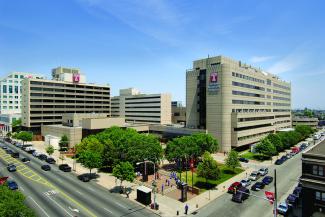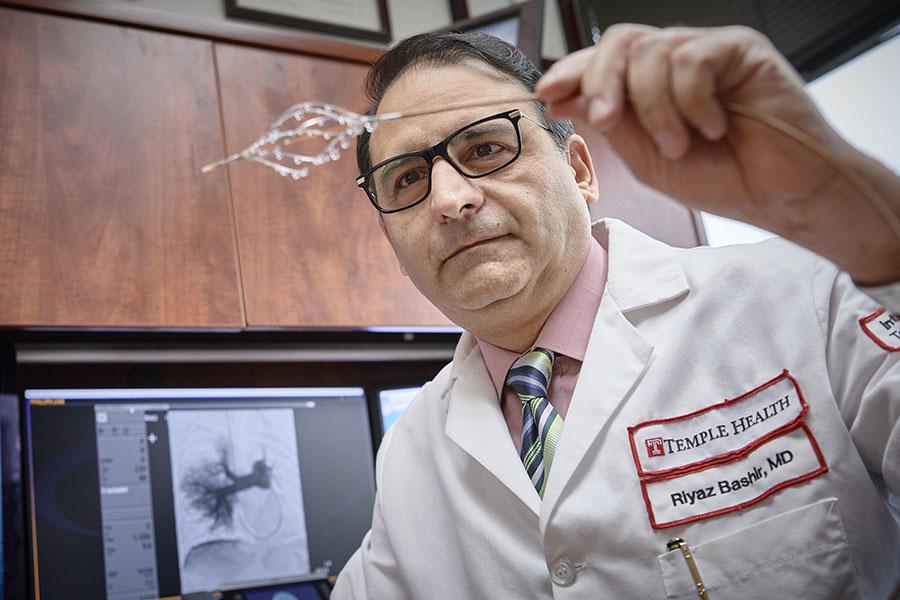Temple provides targeted and highly skilled care for patients who have a blockage or clots in the blood vessels in their lungs (pulmonary embolism). Prompt treatment can be life-saving.
Understanding Pulmonary Embolism
Pulmonary embolism often occurs when a blood clot in the deep veins of the legs breaks free and then becomes lodged in the lungs. Some medical conditions may intensify the risk of developing these initial blood clots in the legs (known as deep vein thrombosis, or DVT).
Pulmonary embolism can be acute (a new obstruction that requires immediate treatment to dissolve the clot) or chronic (an older obstruction that has not been resolved and that may worsen over time). Recurrent or chronic pulmonary embolism may result in high blood pressure in the blood vessels in the lungs, known as chronic thromboembolic pulmonary hypertension (CTEPH). This dangerous condition is progressive and can lead to overwork and right heart failure.
Comprehensive Diagnosis
Prompt diagnosis of a pulmonary embolism is critically important. Temple has extensive experience using a comprehensive range of diagnostic tools that can accurately and quickly diagnose the presence of these dangerous blood clots. Our diagnostic may include:
- Transthoracic echocardiogram
- CT (computed tomography) pulmonary angiography
- Compression ultrasonography
- Contrast venography
- Magnetic resonance imaging (MRI)
- Ventilation-perfusion scan
- Blood tests
- Right-heart catheterization
- Pulmonary angiography
- Cardiopulmonary exercise testing
- Pulmonary function tests
At Temple, pulmonary embolism is often treated using clot dissolving medications along with catheter-based clot removal; severe or long-lasting chronic blockages may need to be surgically removed. Our vascular specialists are highly skilled at surgical removal of embolisms, and we are one of a few expert centers in the country that performs pulmonary thromboendarterectomy surgery for CTEPH. For patients with a history of deep vein thrombosis, our vascular specialists can also implant filters, which prevents blockages from traveling from the lower body to the lungs. We strive to use minimally invasive methods whenever possible to reduce scarring, blood loss and recovery time.
Highly Experienced, Multidisciplinary Team
Our specialists in the Acute and Chronic Pulmonary Embolism Program focus on providing advanced diagnosis and care in one location. We are committed to working closely with patients so that they understand their treatment plans and the importance of follow-up care. Our team includes:
- Interventional Cardiologists
- Pulmonary Hypertension Specialists
- Cardiovascular Surgeons
- Interventional Radiologists
- Pulmonologists


